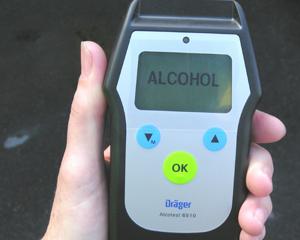
Although unlikely to do that, Ms McKeague's infectious laughter rings out often as she enthusiastically expresses her sentiments about her Otago home and her job.
Ms McKeague has worked for the Otago Regional Council (ORC) for the past seven years - the past four of those have been as its land resources manager.
Married to a New Zealander with two children, she moved from Western Australia to Dunedin because her husband ‘‘couldn't live'' without the All Blacks.
Otago and its people have fast become her passion.
‘‘I love it here,'' Ms McKeague said.
In her career she said she had rejected jobs which were researchbased in favour of those which brought her into contact with people, even if it was not always pleasant.
Her door is always open and her office phone runs hot - calls are rarely screened and if they are it is down to the backlog of paperwork required as part of the position.
The job is about talking to people, trouble-shooting and problem solving.
Building trust and relationships was crucial, Ms McKeague said.
‘‘Just giving them a piece of paper is simplistic.''
Many of the discussions she had were about sharing knowledge and considering farm systems and how to build good resource management practice into people's businesses and even into family life, she said.
‘‘Farmers need to understand our [the ORC's] plans and how to remain within the permitted areas.
‘‘It's about managing the resources of Otago well.
‘‘It's to assist people to look after the environment [and to] give them guidance on how to farm well and care for our soil, air and water.''
It was not always easy, especially when people were unwilling to change their stance on an issue, but Ms McKeague said she found if she could put the issue into context and was seen to be working fairly, often that was all that was needed to gain the commitment to change practices.
‘‘I have had angry retorts.
‘‘Often, what lies behind it is a frustrating episode and I can empathise with that, or they have come under the eye of the compliance team.
‘‘I have been left a bit shaken when it comes out of left field, but I just deal with the facts and listen.
‘‘If I'm not being told in a polite manner I walk away.''
If there was no change to bad practice, there was no alternative but to take a tough approach, she said.
In her role, and with her team, Ms McKeague covers the area inland to Queenstown, Ranfurly, Alexandra and Wanaka, south to Tapanui and Clinton and north to the Waitaki.
Travelling is a large part of the job and so is education.
On behalf of the council and often teaming up with other organisations, she hosts numerous field days, frequently in the more isolated corners of the province but arranged so farmers can have easy access to the information.
As well as arranging interesting, informative speakers - ‘‘If I am bored then others will be'' - she remembers the little things like picking up the milk for morning tea.
Ms McKeague said her biggest bug-bear at present, and she was certain it would be a passing problem, was the lack of effluent storage on dairy farms.
The message she was trying to get through was about being careful with effluent on saturated soils and having enough storage to manage through wet weather.











